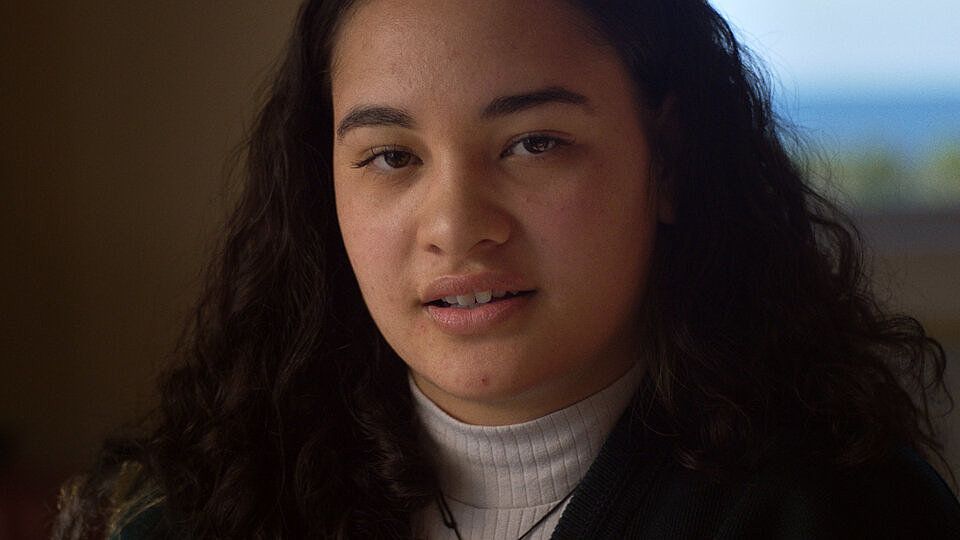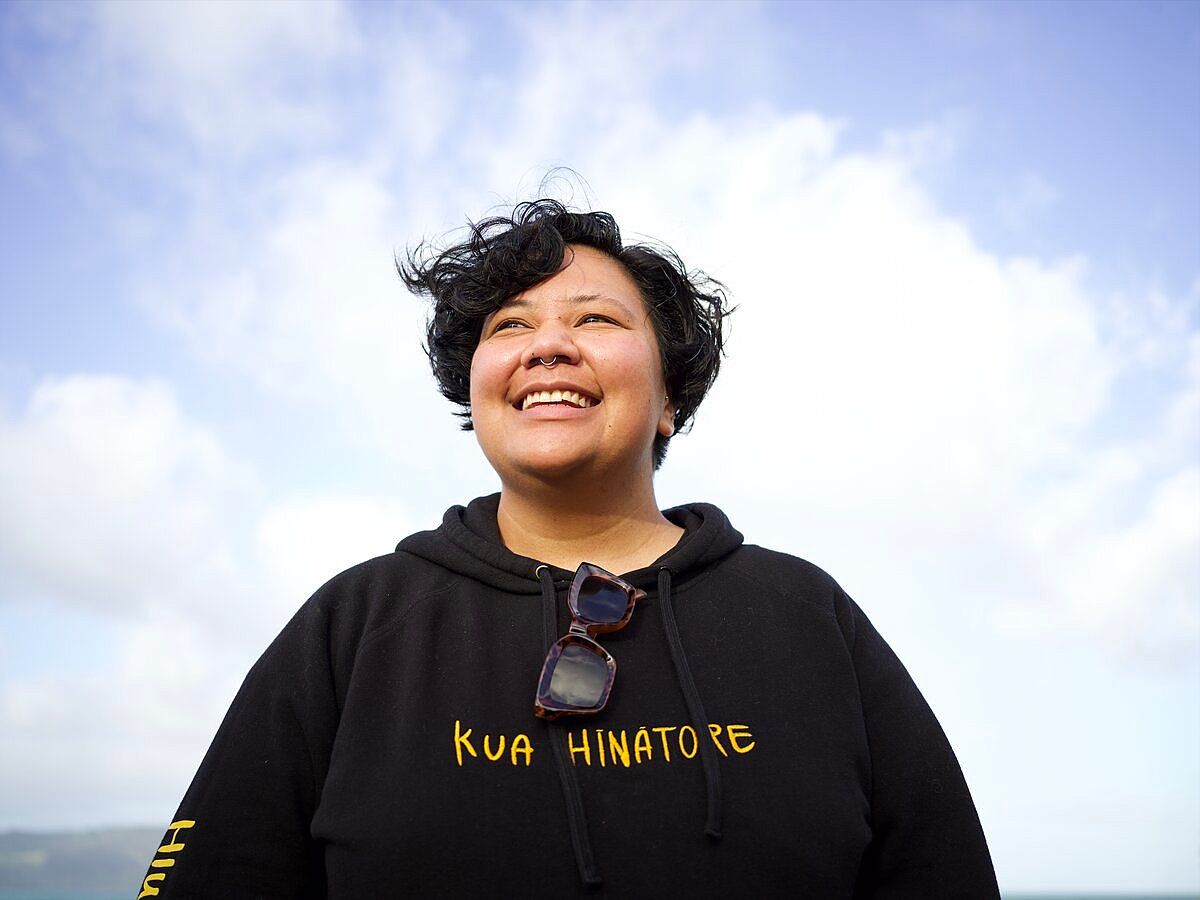Tūmanako
Filmmaker and documentary fanatic Alesha Ahdar responds to three films in Season 8 of Loading Docs: Night Ride, Fifty Percent and Wind Song and Rain.
I’m a bit of a documentary fanatic. I love how documentaries allow you into spaces and let you get to know people you might not have otherwise known existed. Online documentaries, in particular, immortalise those people and those moments in time. You never know who might see them and whose lives might change because of them.
Loading Docs is an annual online documentary series for New Zealand filmmakers. The theme this year was tūmanako. This was particularly relevant considering they were released during our recent Level 4 lockdown. The overarching themes that stood out for me in these three films were whakapapa, inheritance and grief.
*
A 66-year-old woman has an unusual ritual of returning to her old family home to care for stray cats. Worrying about the implications of her obsessive routine, her son wants to understand why. Joining her night rides, it’s time to unravel the truth.
Director: Todd Karehana
This film follows director Todd Karehana, his beautiful mum, Alma, and a cat she’s named Fluff. The film is edited in black and white, and the journey they go on together is trying to catch Fluff so that Alma can rehome them. Night Ride is as quirky as I would have guessed from the synopsis, so when the film ended, I was taken aback by the fact that I had cried from start to finish.
“Mum. Seven years ago, you moved out of our childhood home. Shortly after, you told me you were feeding stray cats. It seemed normal, until you told me the cats lived in front of our old house. I’m worried about you.” – Todd
Todd and Alma’s relationship is so relatable. My mum is in her 60s and lives on her own. She works in a factory down south because she’s not quite old enough to retire, and us kids don’t make enough money to fully support her yet. Mum and I can be on the phone together for hours. We talk about simple things, like if she’s gone to get her favourite thickshake that week, if she’s added a new piece of décor to her rental, and, of course, we catch up on family gossip. The older I get, the more worried I become for her.
There’s a part in Night Ride where Todd gets frustrated with his mum because Fluff was close enough to be caught. I felt like this moment mirrored many moments that my mum and I have shared. When I’ve been so frustrated because I love her and I’m trying to help. But mums have their own feelings and their own ways of processing. They carry a lot more than they give off. I think that’s why I shed so many tears through this film.
“I miss Mitchell too.” – Todd
This quote at the end of the film really hit me in my gut. Is Alma’s nightly routine feeding cats connected to the grief she feels having lost a son?
*
Lillian Hanly has a 50/50 chance of inheriting Huntington’s, a neurodegenerative disease. With a number of her family testing positive for the gene, and her mother already affected by it, she must come to a decision. Get tested now or continue to live on in the unknown.
Director: Lillian Hanly
Fifty Percent is a terrifically bold film that follows director Lillian Hanly as she navigates with her loved ones the decision of whether to be tested for Huntington’s or not. This film is deeply emotional and beautifully crafted. I’m sure many of us played the game ‘would you rather’ as kids. For the most part, the questions were outlandish and highly unlikely scenarios. But what happens when ‘would you rather’ isn’t a game anymore?
“My family taught me to view the world for all its beauty, wonder and joy. They’ve also taught me that pain is just as much a part of it. There’s no avoiding the fact that Huntington’s is in my whānau” – Lillian
I know a lot of people who don’t go to the doctor, especially Māori and Pacific people. There are a number of reasons why, but there can be fear in going to the doctor, especially when you have to tell them your family’s health history. Some have to do a lot of family research before going. What if I go and they tell me that I have this? Or that?
There were so many things that I appreciated about this film. Considering the kaupapa, it could have been a dark, desaturated and deeply sad film. But it was set in a beautifully colourful family home. It was vibrant and helped me as a viewer feel like everything was going to be okay. The sense of kotahitanga and aroha within Lillian’s whānau was so strong. I commend Lillian and her loved ones for being so vulnerable, sharing their tears and laughter for viewers to see. I have no doubt that this film will be encouraging for many.
*
A national treasure whose poetry spanned over 40 years, the world knew Hone Tuwhare. His mokopuna Manaia never did. Now 18 years old, Manaia feels her koro calling her, triggering an emotional journey of connection in te reo Māori to prove there’s another Tuwhare who writes poetry.
Director: Matariki Bennett
Wind Song and Rain follows poet Manaia Tuwhare-Hoani to her koroua, the late poet and national treasure Hone Tūwhare’s house, in Kākā Point. The wairuatanga of this film was profound to me. It’s one of those films where I felt my ancestors were watching it with me.
“It’s a strange thing, knowing someone without knowing someone. I met you, Koro, when I read your poems” – Manaia
It was really beautiful for me as a viewer to have been able to hear Hone read his own poetry through archival footage and then hear Manaia’s. I believe that our ancestors have a way of guiding us to be in certain places when they know that we are ready, and I believe that the gifts that our ancestors had are passed down to us. I really felt that for Manaia in this film.
“Last night I was sitting at his table. I was writing poetry and what I want to do now is read my poetry to this house, to him, to the ocean, to this place… so this house, this ocean, knows there is another Tuwhare now, another one that writes poetry.” – Manaia
Manaia speaks about what it felt like to be in the same space that her koro once lived in. To have sat in his house and seen the ocean that he loved. This part of the film took me back to my own memory from a couple of years ago. I was filming on a marae that I’d never been to but somehow knew that it was familiar, in a wairua sense. I soon found out that it was the marae that my great-grandmother grew up on and the marae my koro played at as a child. The kaumatua I was talking to walked with me and said, “Right here where you are walking, this is where they walked too. This is home.” By walking on the same grass that they did, I felt I knew them better, and that I somehow knew myself better too.
All of these filmmakers have made their films with delicacy and upheld the mana of those in them. I look forward to seeing the creations that are to come from these amazing artists.




